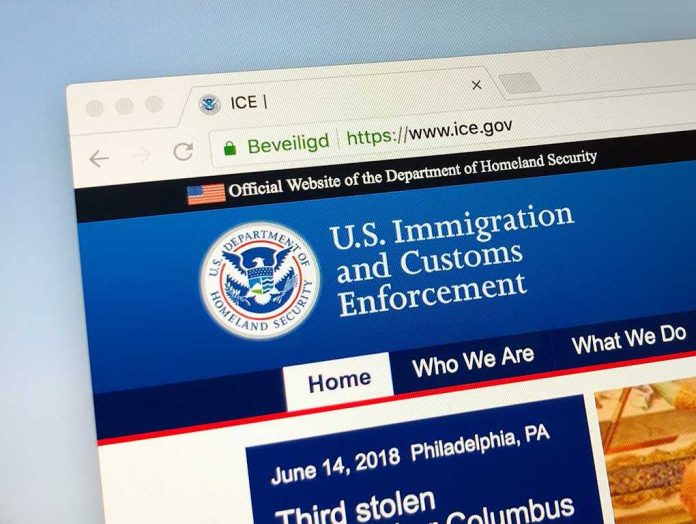
What happens behind closed doors when a government agency sidesteps its own rules, leaving human rights and transparency in question?
Story Snapshot
- ICE detains individuals in secretive, unreported rooms, contravening its policies.
- Concerns arise about due process, access to legal counsel, and human rights.
- Congressional scrutiny intensifies as calls for investigation grow louder.
- Reliance on private contractors with little oversight exacerbates the issue.
ICE’s Unreported Detention Spaces
U.S. Immigration and Customs Enforcement (ICE) has been found to detain individuals in secretive rooms, sometimes for weeks, violating its own policies. These “hold rooms” are not included in ICE’s public facility reporting, raising serious concerns about transparency and accountability. This practice has persisted since 2008, involving a network of over 1,397 facilities, many of which operate without public knowledge. Such secrecy raises red flags about detainees’ rights and the agency’s adherence to federal oversight requirements.
The existence of these unreported detention spaces is not just a bureaucratic oversight but a systematic policy violation. ICE’s increasing reliance on private contractors, some with little to no experience, further complicates the issue. These contractors operate many of these facilities, with little scrutiny or accountability, leading to substandard conditions and potential human rights violations. Reports of abuse, deaths, and suicides in custody have fueled calls for reform and transparency within ICE’s operations.
Congressional and Public Response
In September 2025, congressional calls for investigations into ICE’s practices gained momentum. Led by figures like Rep. Pramila Jayapal, lawmakers demand clarity on ICE’s contracts and detention practices. They cite a lack of transparency, substandard conditions, and a troubling reliance on unreported facilities. These demands align with a broader push for oversight, as ICE plans to double its detention capacity by awarding large contracts to inexperienced private firms, raising further concerns about accountability.
While ICE officials claim that expanded enforcement requires increased detention capacity, they refuse to disclose specifics about their facilities. This refusal has only amplified calls for unannounced oversight access, as required by law. Advocacy groups, including the Vera Institute, provide detailed analysis and data-driven insights into ICE’s opaque detention practices, underscoring the risks posed by secretive detention spaces.
Implications and Future Outlook
The implications of ICE’s secretive detention practices are far-reaching. In the short term, detainees face heightened risks of rights violations and lack of access to legal counsel. Long-term consequences depend on the response from Congress and the public. The potential for systemic reform exists, but the risk of further entrenchment of opaque practices looms large. The political debate over immigration enforcement, transparency, and privatization of detention is set to intensify.
The affected parties include not only the immigrants and asylum seekers detained by ICE but also their families and legal representatives. Local communities near new detention facilities are also impacted, as are private contractors profiting from expanded contracts. Economically, significant federal spending on detention contracts with inexperienced private firms raises questions about oversight and accountability. Socially, these practices erode trust in government institutions and exacerbate trauma and uncertainty for detainees and their families.
Expert and Advocacy Perspectives
Industry experts and advocacy organizations emphasize the dangers of ICE’s lack of transparency. The Vera Institute highlights the risks posed by secretive detention spaces, while congressional leaders argue that ICE’s practices undermine federal law and oversight. Academic scholars and legal experts warn that such practices undermine due process and constitutional protections, calling for independent investigations and reforms to address these issues.
Revealed: ICE violates its own policy by holding people in secretive rooms for days or weeks – The Guardian https://t.co/BgbGdkp6CW
— Kymbra C. Kelley (@CKymbra63546) October 31, 2025
Diverse viewpoints exist, with some local officials supporting expanded detention as a means of public safety. However, advocacy groups and some lawmakers see it as a violation of rights and a threat to democratic accountability. The growth of the private prison and detention industry has sparked increased scrutiny of government contracting and oversight practices, highlighting the need for transparency and accountability in ICE’s operations.
Sources:
Jayapal Calls for Investigation of ICE Detention Centers and Contracts
ICE Detention Trends – Vera Institute
Weekly U.S.-Mexico Border Update: 2025 migration data, ICE purge …



